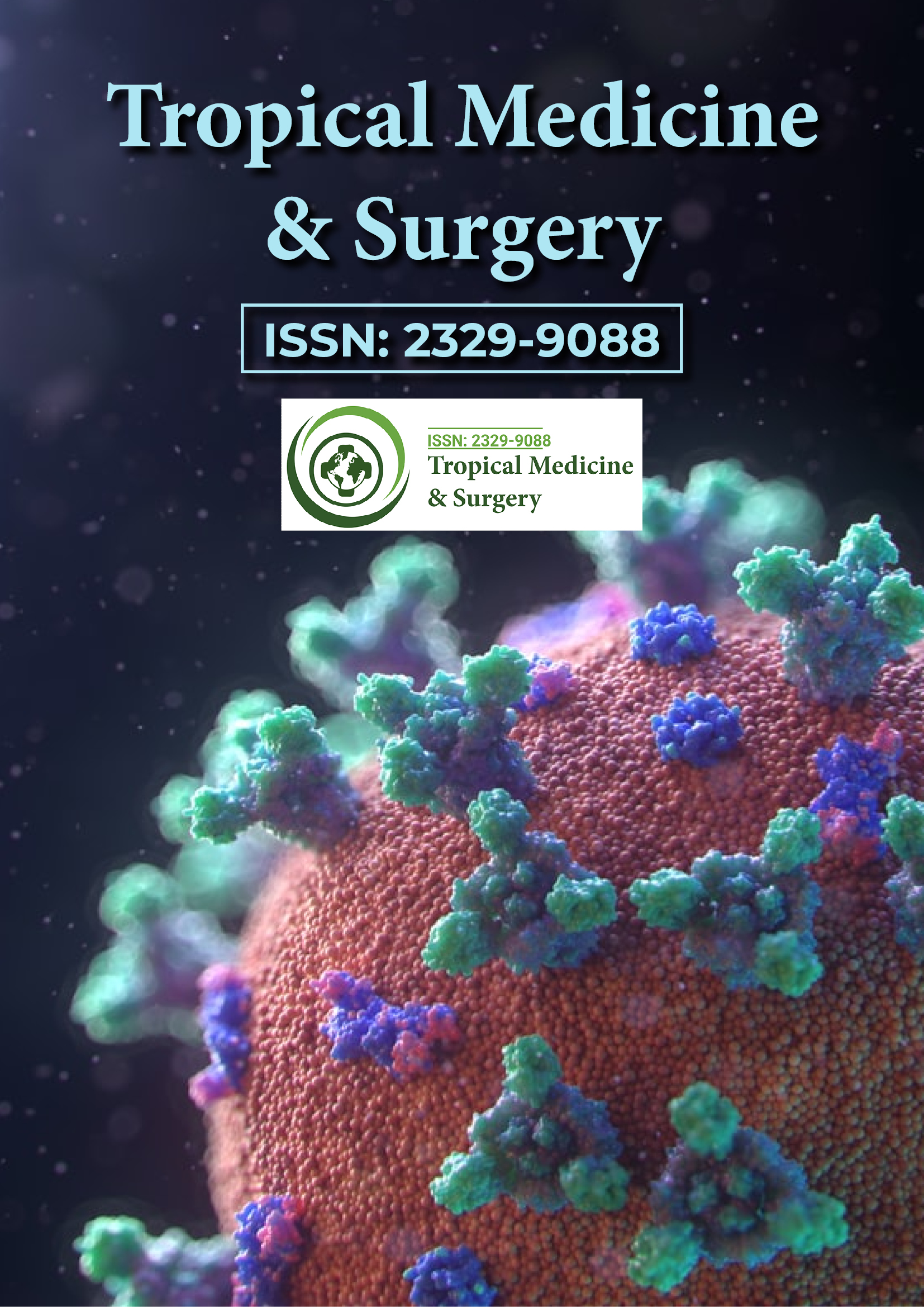Indexed In
- Open J Gate
- Academic Keys
- RefSeek
- Hamdard University
- EBSCO A-Z
- OCLC- WorldCat
- Publons
- Euro Pub
- Google Scholar
Useful Links
Share This Page
Journal Flyer

Open Access Journals
- Agri and Aquaculture
- Biochemistry
- Bioinformatics & Systems Biology
- Business & Management
- Chemistry
- Clinical Sciences
- Engineering
- Food & Nutrition
- General Science
- Genetics & Molecular Biology
- Immunology & Microbiology
- Medical Sciences
- Neuroscience & Psychology
- Nursing & Health Care
- Pharmaceutical Sciences
Commentary - (2023) Volume 11, Issue 5
Role of Beneficial Bacteria in Protecting Corals from Microbial Pathogens
Kathleen Wutys*Received: 01-Sep-2023, Manuscript No. TPMS-23-23344; Editor assigned: 04-Sep-2023, Pre QC No. TPMS-23-23344(PQ); Reviewed: 18-Sep-2023, QC No. TPMS-23-23344; Revised: 25-Sep-2023, Manuscript No. TPMS-23-23344(R); Published: 02-Oct-2023, DOI: 10.35248/2329-9088.23.11.324
Description
These bacteria display a range of antimicrobial activities that can contribute to coral health and help protect them from various microbial threats. To better understand how these beneficial bacteria interact with corals, scientists have been studying the coral-associated bacterial communities and their interactions with microbial pathogens. The study of coral-associated bacterial communities has revealed that there are many different types of beneficial bacteria present in coral reefs. These beneficial bacteria produce a variety of compounds that exhibit antimicrobial activity against a wide range of microorganisms, including bacterial pathogens. This is due to the fact that these compounds disrupt vital functions such as cell wall synthesis, metabolic processes, and DNA replication in microbial cells. In addition, some compounds produced by beneficial bacteria can inhibit the growth and reproduction of microbial pathogens while also stimulating coral growth and survival.
Beneficial bacteria also perform other roles which help keep corals healthy by suppressing the growth of pathogenic microorganisms in the form of competition for resources such as nutrients or space on surfaces. This prevents pathogenic microorganisms from establishing themselves on corals and ensures that only beneficial species remain on the surface. Additionally, some species of beneficial bacteria produce antibiotics which can further reduce the abundance of pathogenic microbes on corals and allow them to propagate without being engulf by infectious agents. The presence of beneficial bacteria has also been found to be essential for maintaining healthy coral reefs by providing additional protection against invasive species such as macroalgae or sponges which can compete with corals for space or resources. By helping control levels of counteraction, this helps ensure that corals remain abundant and well-protected from other harmful factors such as temperature fluctuations or water pollution. Thus, it is clear that beneficial bacteria play an important role in protecting corals from microbial pathogens as well as providing additional benefits to support healthy reef systems.
This antimicrobial activity is crucial for protecting corals from microbial pathogens and aiding in their survival. Coralassociated bacteria are specialized for their unique niche and can produce antimicrobial compounds which offer protection from microbial threats. They play an important role in maintaining a healthy balance between bacterial species on the reef and those that may be potentially harmful to the reef's inhabitants. These beneficial bacteria compete with potential pathogenic organisms to survive in coral tissue, which limits their ability to cause disease outbreaks. The presence of these beneficial bacteria also helps to create a strong immune response against microbial pathogens within corals. The coral’s own cellular response works alongside these beneficial bacteria to prevent infection from microbial organisms by creating an environment unsuitable for pathogenic growth. This immune system is further enhanced through nutrient uptake from food sources, such as zooplankton, which also leads to increased production of antimicrobial compounds from the coral-associated bacteria. Not only do these beneficial bacteria protect corals from disease but they also have other important roles too, such as aiding nutrient cycles on the reef and providing food for other organisms such as crustaceans. The importance of maintaining healthy populations of coral-associated bacteria cannot be underestimated; without them, many corals would be at greater risk from infection by pathogens and would struggle to survive in their environment. In conclusion, antimicrobial activity provided by beneficial bacteria plays an important role in protecting corals from microbial pathogens on reefs around the world. These specialized microbes act as an innate defense mechanism that helps keep these delicate ecosystems safe while also providing many other benefits that support a healthy balance between different species living on coral reefs.
Though there are many challenges and limitations associated with using beneficial bacteria for coral protection, is ongoing to better understand their role in defending against microbial pathogens. With further investigation into identifying which bacterial species possess antimicrobial activity, as well as understanding how they interact with coral tissue and microbial pathogens, we may eventually find an effective way to use beneficial bacteria for protecting our essential coral reef ecosystems. The role of beneficial bacteria in protecting corals from microbial pathogens has been quite remarkable. Beneficial bacteria can provide antimicrobial activity to coral reefs by combating microbial pathogens. These beneficial bacteria are part of the coral-associated bacterial community that colonizes corals and play an important role in maintaining their health. Due to their unique properties, these bacteria could offer some protection from diseases caused by microbial pathogens, thus helping to protect the fragile underwater ecosystems from devastating outcomes. Additionally, understanding how beneficial bacteria interact with corals will help us to devise strategies for better management and conservation of coral reefs. This can be done through improved monitoring practices and targeted interventions aimed at controlling the spread of disease-causing microbial pathogens in coral ecosystems. Moreover, further needed to explore how beneficial bacteria could be used as a tool for understanding the link between coral health and its environment.
Citation: Wutys K (2023) Role of Beneficial Bacteria in Protecting Corals from Microbial Pathogens. Trop Med Surg. 11:324.
Copyright: © 2023 Wutys K. This is an open access article distributed under the terms of the Creative Commons Attribution License, which permits unrestricted use, distribution, and reproduction in any medium, provided the original author and source are credited.
